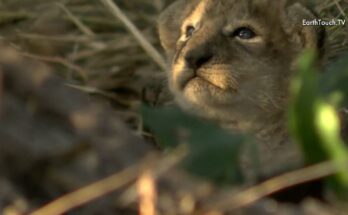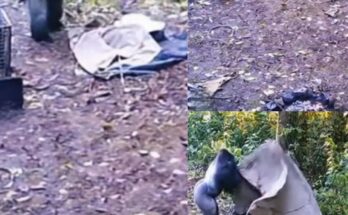
In the golden savannah, where the sun dips low and the shadows grow long, a lioness paces anxiously through the tall grass. Her eyes scan the horizon, ears twitching at every rustle. She calls out softly, her cries echoing into the still air—searching, hoping. Her cubs, once full of playful energy and curiosity, are gone.
This lioness had guarded them fiercely, guiding them through the dangerous world of the wild. She taught them to stalk, to listen, to hide. Yet even the strongest mother cannot protect against everything. Predators, rival males, or even the harsh hand of nature itself—so many threats can steal away the ones we love.
As hours pass, her calls grow more frantic, more desperate. She sniffs the ground, circles back, and returns again to where she last saw them. But there’s nothing—no sound, no movement. Just silence.
And then, the truth begins to settle in.
The lioness lies down, her powerful body trembling. There’s a depth of pain in her eyes that is almost human. In this moment, we see something raw and real: grief. The kind of grief that transcends species. The bond between a mother and her children is not just a human story—it belongs to all life.
It’s truly heartbreaking to see the ones you love killed. There’s no justice in it, no easy reason. Only absence. Only pain. In the wild, loss comes quickly and often without mercy.
As the sun sets, the lioness rises slowly and disappears into the grass—alone.


